Kokedama care guide – 5 expert tips on this innovative indoor plant display
This stylish Japanese technique to hang plants can add a quirky touch to your houseplant collection

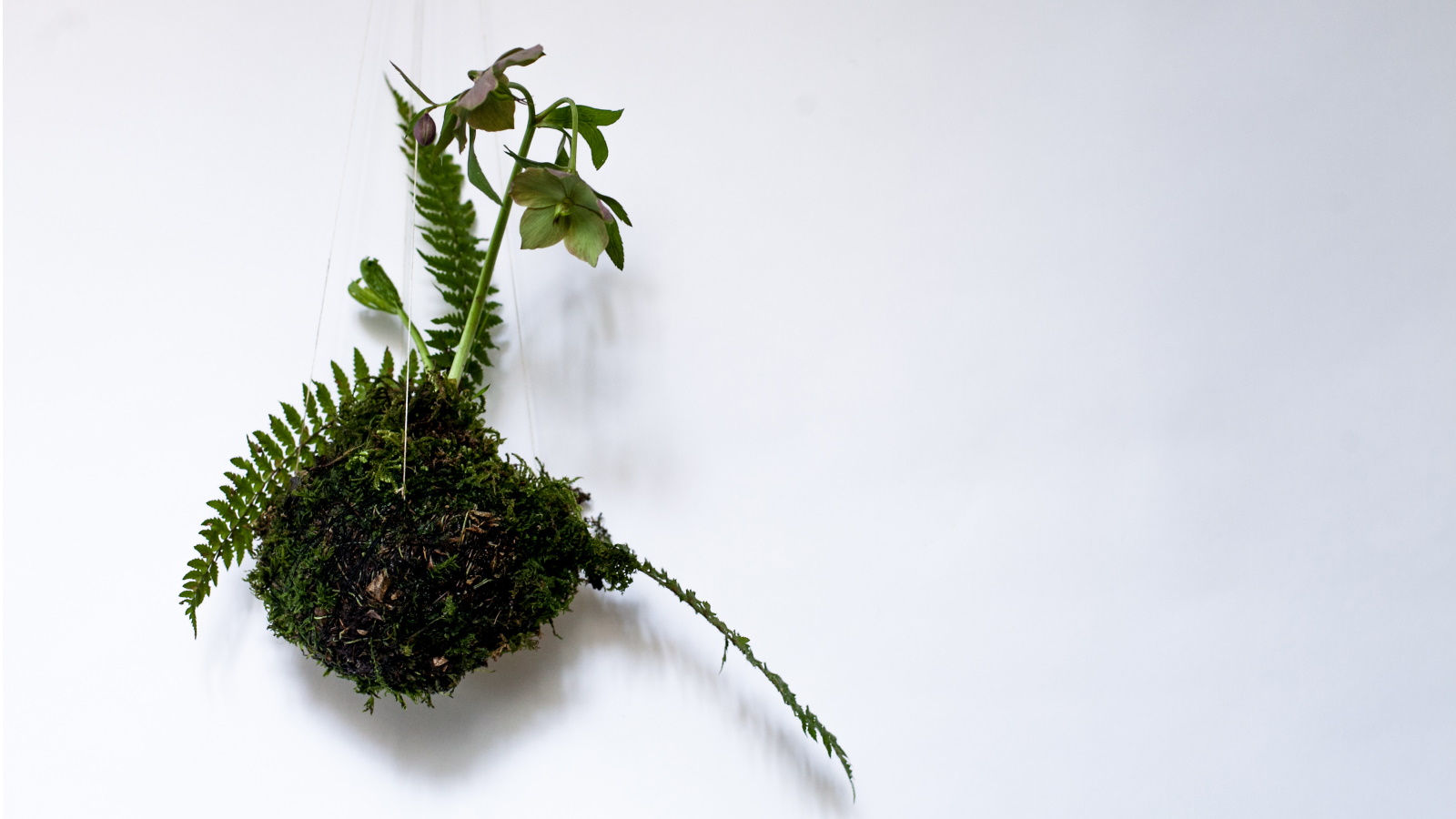
There's a reason plant parents continue to choose hanging plants among the best indoor plants. It's a long-loved houseplant trend that adds dimension and interest to any indoor garden, and kokedama might just be the next best way to achieve this look.
'Kokedama, or a string garden, is a Japanese gardening technique where plants are grown in moss-covered balls instead of traditional pots,' says Autumn Hilliard-Knapp, houseplant expert from Perfect Plants.
The term 'kokedama' refers to moss ball in Japanese and it consists of a soil ball covered in moss and tied together with string. Most commonly, kokedama plants are seen indoors as an alternative to hanging plants but they can also be displayed sitting on a surface or even as an alternative to outdoor hanging baskets.
They aren't as daunting as they may initially seem and with just a few simple care steps they will stay in prim and proper shape for years. We've spoken to experts to find out how to best take care of kokedama plants.
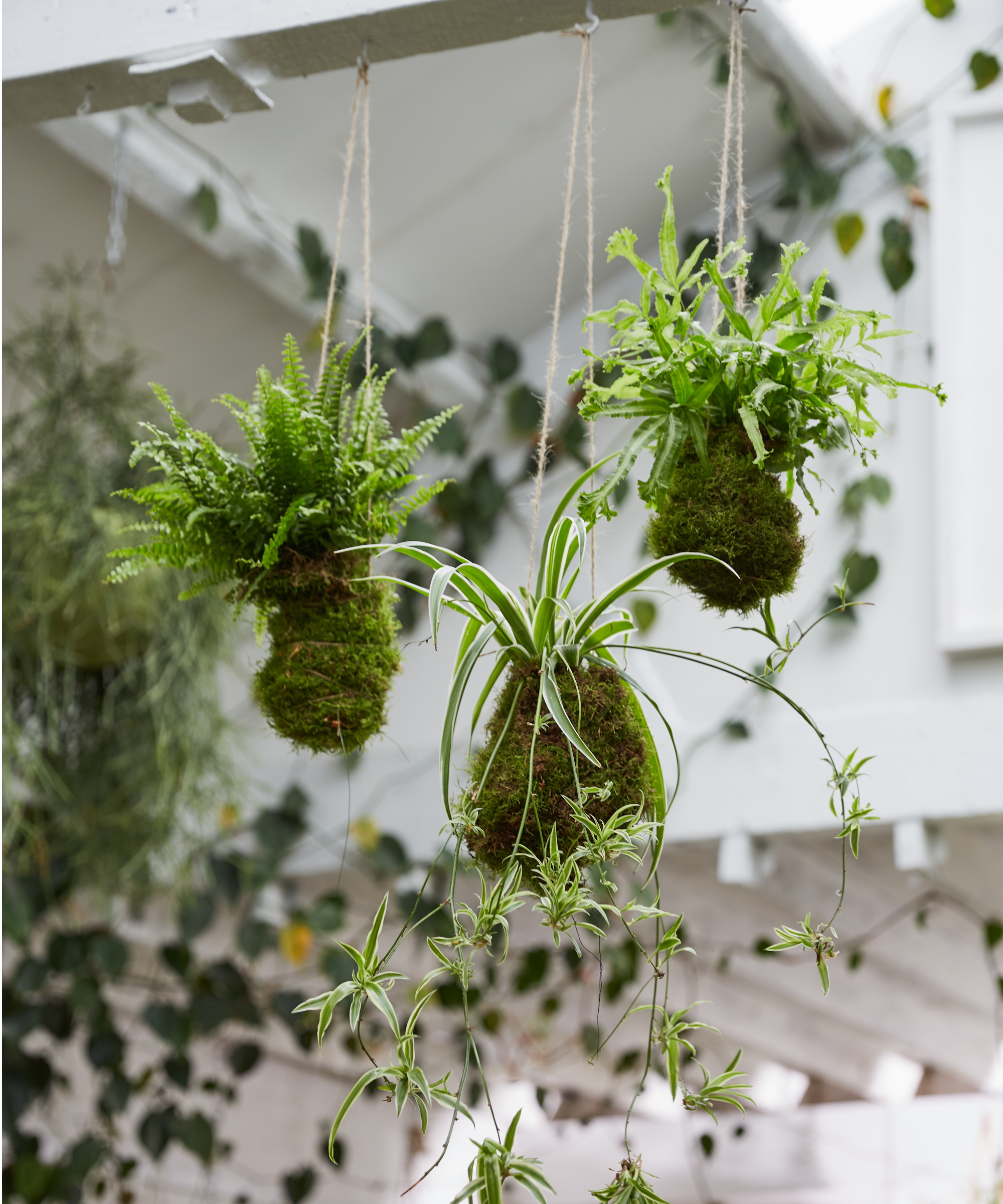

Autumn is a horticulture specialist and marketing professional at Perfect Plants Nursery. With four years of experience in the horticulture industry, she has developed a passion for helping people create beautiful indoor and outdoor spaces to enjoy. Her expertise in horticulture encompasses a broad range of activities, including plant care and selection, landscape design, and maintenance.
5 expert care tips for kokedama plants
This trendy and eye-catching way to display plants has Japanese origins and can add a statement to your houseplant collection. They're easier to care for than you might expect and we've gathered expert tips to keep them looking their best for years.
1. Give it indirect light
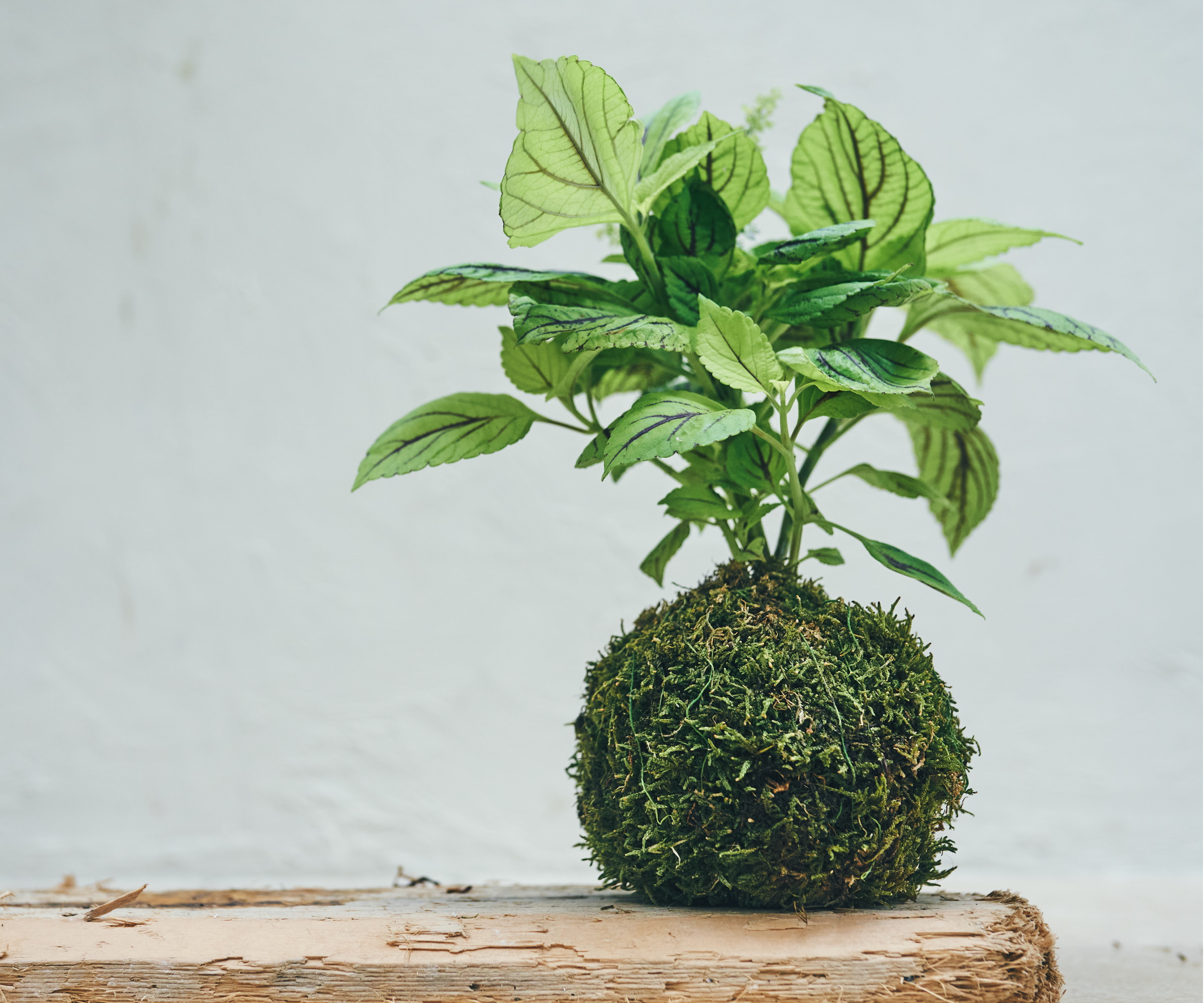
Whether you're suspending your kokedama plant from the ceiling or placing it on a table as a centerpiece, it's important to make sure it is getting sufficient light.
Kokedama will do best in bright, indirect light. Too much light may dry it out too quickly or scorch and discolor the moss. Filtered natural light is ideal, so consider placing it by a window with a sheer covering.
Design expertise in your inbox – from inspiring decorating ideas and beautiful celebrity homes to practical gardening advice and shopping round-ups.
Many people who display their plants in this way will choose to hang them in front of a east or west-facing window, away from direct sunlight.
2. Water it by soaking
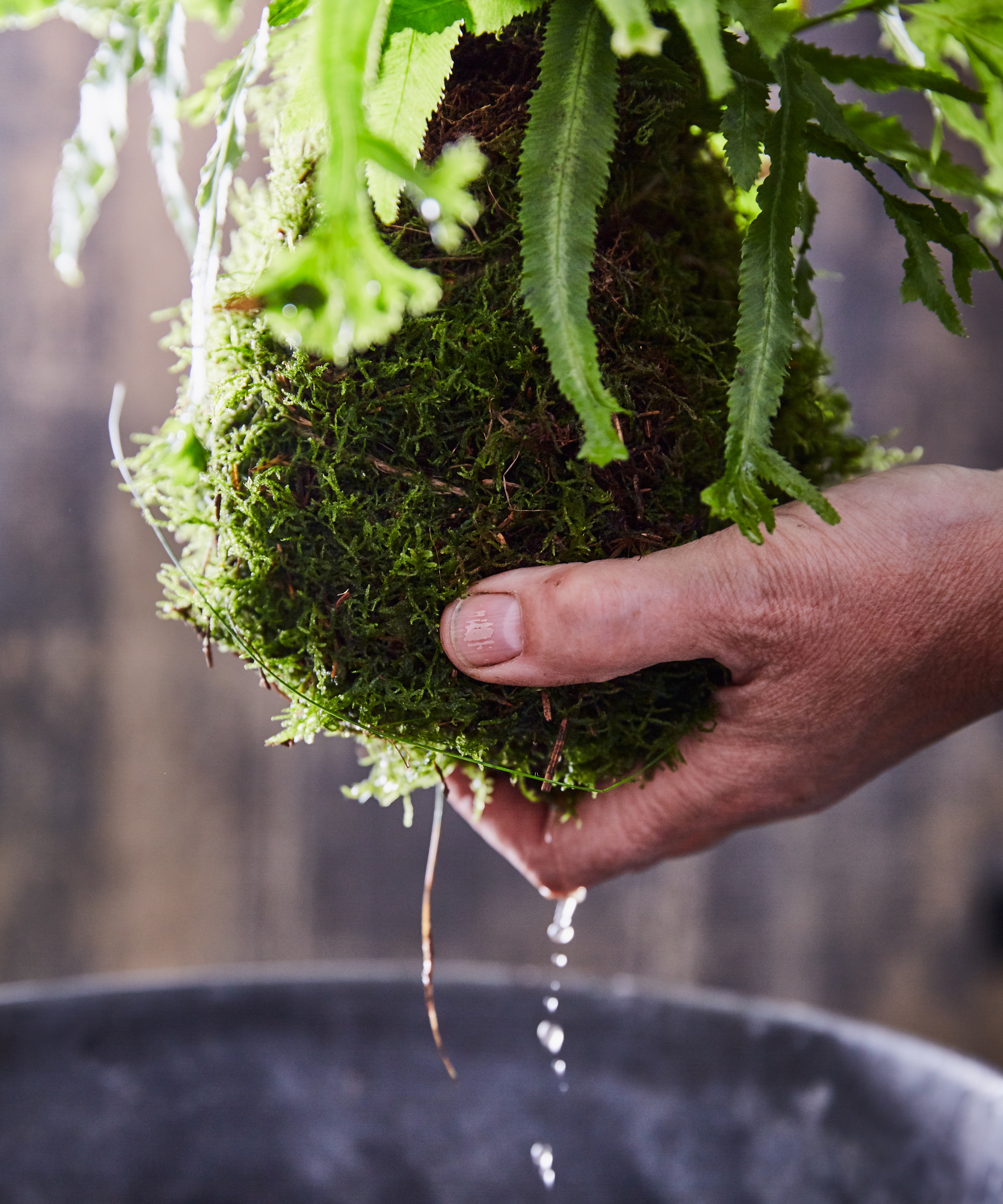
Knowing how to water houseplants is a challenging task and, much like watering air plants, kokedama may raise the question of what to do when there isn't a container to catch the water.
'The most challenging part of the kokedama plants is figuring out a good watering schedule,' says Cate Kowalsky, marketing manager at Pafe Plants.
'Soak the moss ball in a bowl of water when the moss is looking dry and the plant is slightly limp,' she adds.
The key is to create a schedule that ensures you aren't overwatering the plant you are growing in your kokedama, but it's a good idea to submerge the moss ball when it is dry to let it soak in moisture.
'If you use a hardy plant like a pothos or philodendron, you'll be able to mess around with the watering schedule a little to figure out what's best,' Cate says.

A passionate plant parent, Cate has been working with plants for the last 14 years. If she's not at her friends' house watering their plants, you'll find her shoving fallen vines or cactus pads in her purse so she can propagate at home. She is currently the Marketing Manager at the online plant shop, Pafe Plants. When she finds the time to stop fussing over her plant collection, Cate's hanging out at home in Jersey City with her husband and dog.
3. Mist it regularly
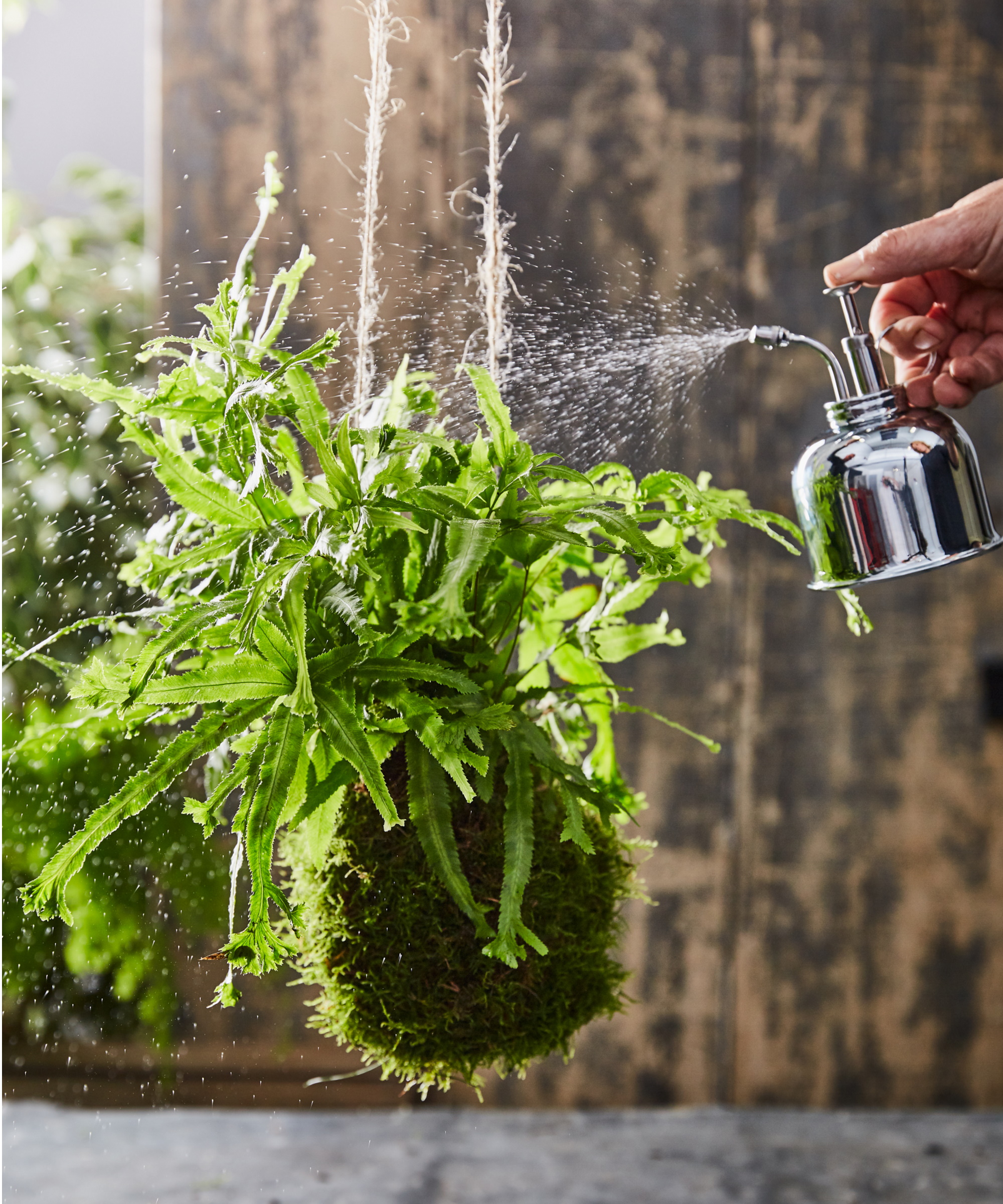
The best way to keep your kokedama looking bright green is by keeping the moss at a good moisture level.
Moss favors wet environments and will lose vibrancy as it dries out. Regularly misting your moss ball will help increase humidity and keep it at a consistent moisture level. You can use something like this mister from Amazon.
'I like to mist my kokedama twice a week depending on the season. During summer and hotter days I suggest misting more than usual and just once a week during the winter,' says Virginia Hayes, indoor plant expert at Westerlay Orchids.

Virginia Hayes' floral background started in 1999 importing and exporting floral products from offices worldwide. Holding over 24 years of experience, Virginia is widely respected in the floral industry for both her design skills and business knowledge. With interior plant design at her fingertips, Virginia’ eye for floral arrangements and keeping them thriving is always top priority.
4. Fertilize it during spring and summer
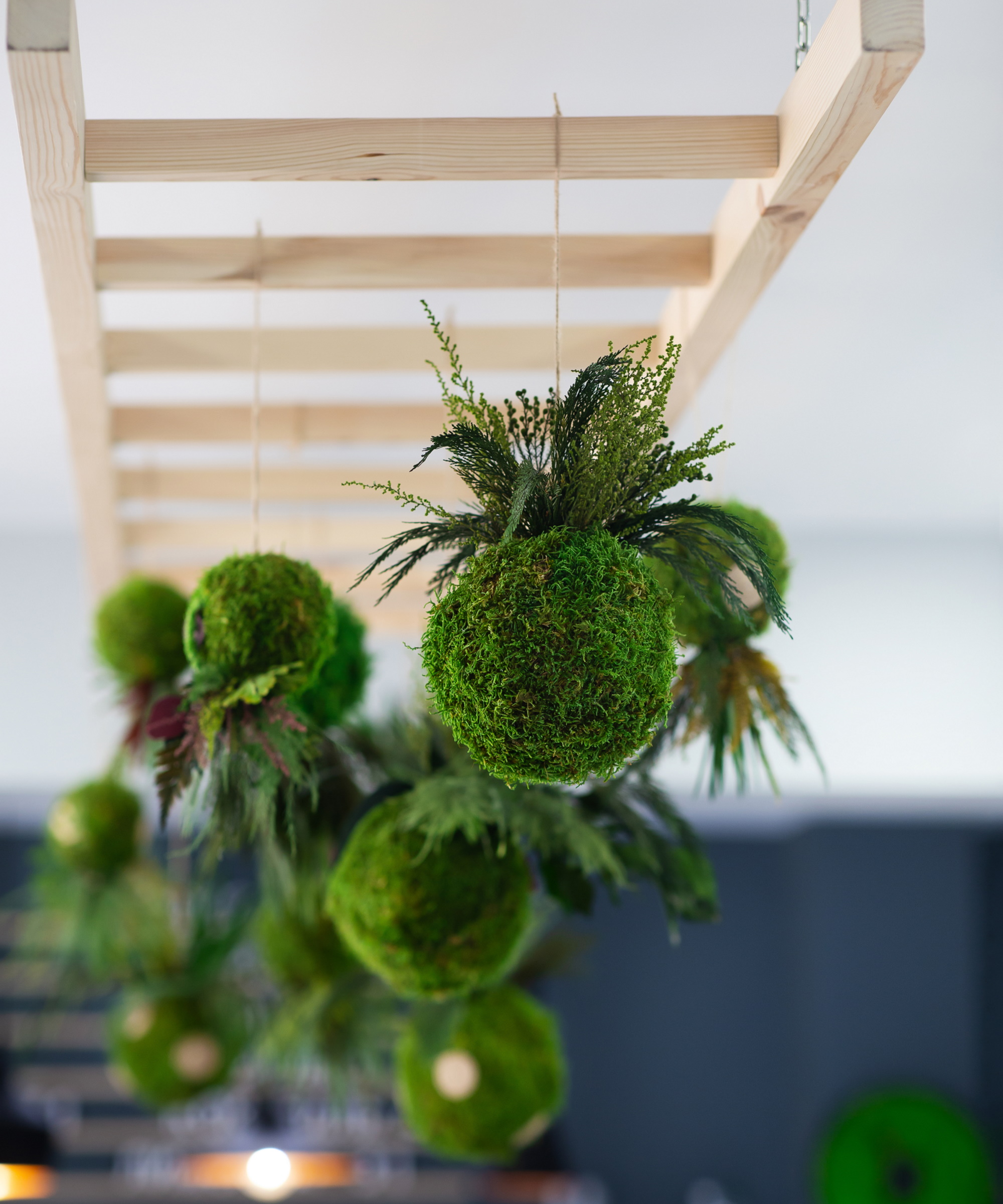
As with other indoor plants, lending a helping hand during the growing season can boost health and the overall appearance of your plants.
Fertilizing your kokedama plant during spring and summer will encourage further growth of the plant on top and keep your moss ball looking vibrant. There are lots of fertilizers for houseplants on the market, like this houseplant fertilizer from Garden Goods Direct.
It's important not to fertilize during colder seasons when the plant isn't growing as much, as it could saturate the soil inside the moss ball and lead to root rot.
'Cutting off any dead greenery along the way also helps encourage growth,' says Virginia.
5. Don't forget your plant's needs
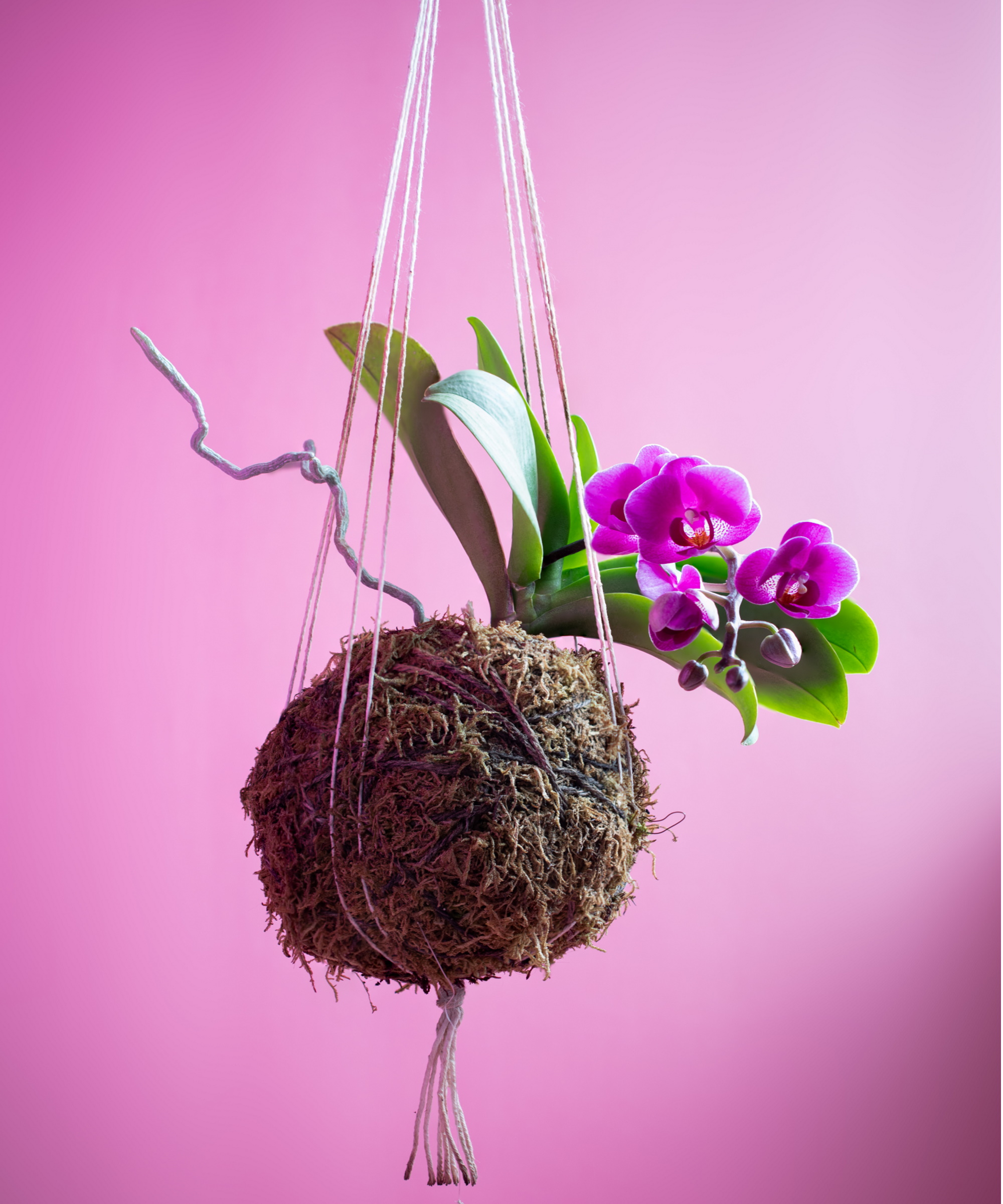
There's no single instruction manual for every indoor plant. Each come with their own care requirements and needs to allow them to thrive.
It's important to remember this when caring for your kokedama and to not neglect the needs of the plant itself.
Doing the simple things in this guide will help keep your moss ball look its best, but make sure you don't sacrifice the moisture, humidity and lighting needs of the plant growing on top of it.
FAQs
What plants can you grow using kokedama?
The joy about kokedama is that it is versatile can be used with nearly any plant. To achieve the classic look of hanging kokedama, it is best to choose smaller plants.
'If it's your first time, I recommend pothos, philodendron, ferns, English ivy and peperomia,' says Cate Kowalsky, marketing manager at Pafe Plants.
Many people also choose to create orchid kokedamas for a more exotic look, although this does require keeping on top of orchid care which can be more challenging.
How long does kokedama last?
This unique way to display houseplants can be long-lasting if you give it the proper care. Ensuring the moss ball receives bright, indirect light and a consistent level of moisture will allow kokedama plants to last for years. Although, you can expect for your plant to outgrow the moss ball after a couple of years. This might mean its time to transfer it into a bigger kokedama.
Kokedama is a beautiful gardening technique to decorate your home with plants in an eye-catching way. Like plant stands, they offer a way of elevating houseplants and adding dimension to displays. They're easy to care for but it's key to not neglect the needs of the plant itself when growing them in kokedama. Why not try making your own kokedama?

Tenielle is a Gardens Content Editor at Homes & Gardens. She holds a qualification in MA Magazine Journalism and has over six years of journalistic experience. Before coming to Homes & Gardens, Tenielle was in the editorial department at the Royal Horticultural Society and worked on The Garden magazine. As our in-house houseplant expert, Tenielle writes on a range of solutions to houseplant problems, as well as other 'how to' guides, inspiring garden projects, and the latest gardening news. When she isn't writing, Tenielle can be found propagating her ever-growing collection of indoor plants, helping others overcome common houseplant pests and diseases, volunteering at a local gardening club, and attending gardening workshops, like a composting masterclass.